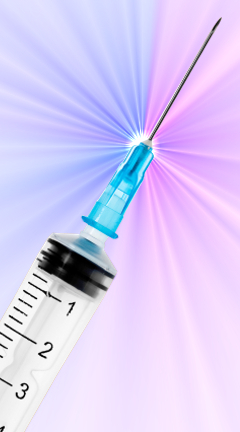Antibiotic centre to re-check old allergies
 Victoria has opened its first antibiotic allergy testing centre, which is set to provide patients at high risk of infection access to more potent and effective drugs.
Victoria has opened its first antibiotic allergy testing centre, which is set to provide patients at high risk of infection access to more potent and effective drugs.
The clinic at Austin Hospital will run in collaboration with Victoria's Peter MacCallum Cancer Centre, and is just the second of its type in Australia.
A big part of its function will be in antibiotic de-labelling.
Experts say it will lead to better treatments for the 20 per cent of people who come to hospital believing they have an allergy to antibiotics, given that up to 90 per cent of them do not.
Clinic coordinator Dr Jason Trubiano has told reporters that many people have had a strange reaction in childhood that is mislabelled as an allergy.
“This can be very limiting if, for example, they think they are allergic to penicillin and they have cancer or need a liver transplant, if you're allergic to penicillin it potentially excludes many drugs,” he said.
“When people are labelled as allergic we often have to use second-line drugs.
“Any infection in a patient that has a lowered immune system is at risk and in that situation we want to give them the best antibiotics, so if we can remove a penicillin allergy label and give them the penicillin antibiotic to a bug that's going to work against it, then we want to do that at all opportunities.”
Dr Trubiano says that of 60 patients tested so far, only one has returned a positive result for an antibiotic allergy.
“They're very happy that when they go to their GP the next time when they want to have penicillin for their chest infection, they can take that safely, so people are very positive, we've had great responses from our patients so far,” he said.
“That's what we get into [medicine] for to do, to make a significant differences, and I think this is certainly an opportunity to make a big impact on patient level care which is great.”
Austin Health's head of infectious diseases, Professor Lindsay Grayson, told the ABC that incorrect allergy labels hurt the healthcare system by exacerbating bacterial resistance to antibiotics.
“It's really critical that we can use the first line [drugs] whenever we possibly can,” he said.
“Second-line drugs are either because they don't work so well or because they have a higher rates of side effects and toxicities ... and patients are less likely to take them accurately and therefore resistance can emerge.
“Antibiotic resistance, or superbugs, is now a worldwide problem - in fact, recently the Chief Medical Officer of the United Kingdom likened its impact to that of terrorism around the world ... so it's crucial that we use first line agents where possible.
“They'll work better, they're quicker and they're safer.”








 Print
Print